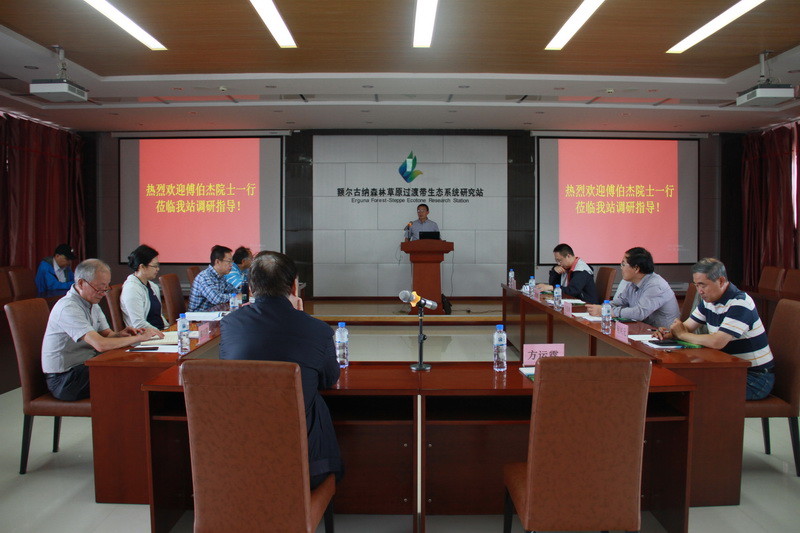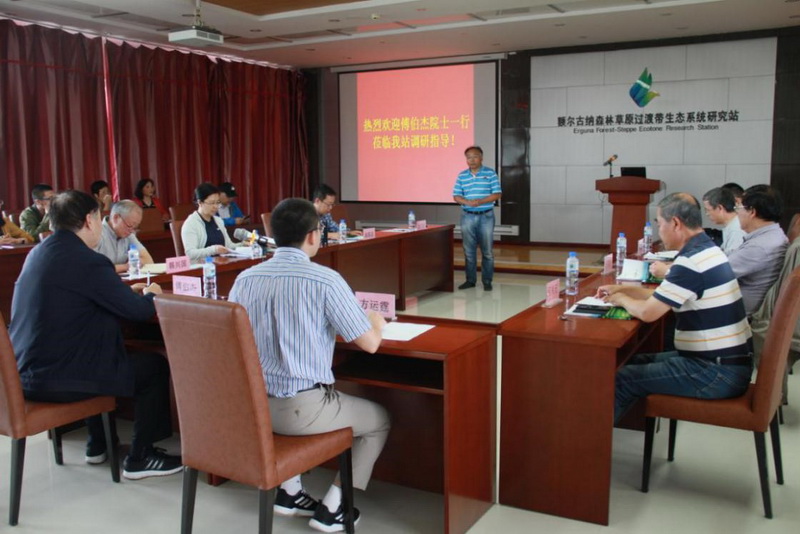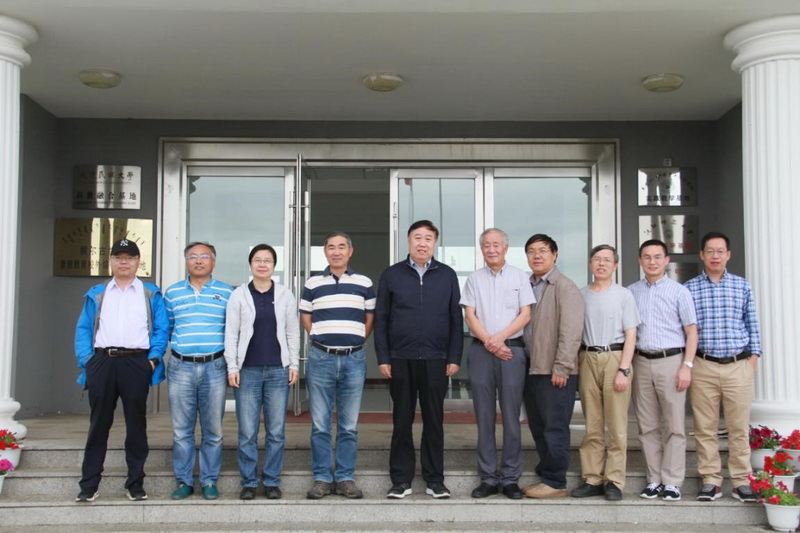On August 7, FU Bojie, academician of the Chinese Academy of Sciences, researcher of the Ecological Environment Research Center of CAS and member of the Academic Committee of Erguna Station, WANG Yanfen, executive vice president of the University of Chinese Academy of Sciences, HE Xingyuan, director of the Northeast Institute of Geography and AgroEcology of CAS, and WANG Kelin, the Institute of Subtropical Agriculture Ecology of CAS were invited to visit Erguna Forest-Steppe Ecotone Research Station for investigation and guidance. FANG Yunting, deputy director of the Institute of Applied Ecology of CAS, WANG Zhengwen, head of Erguna Station, and HAN Xingguo and Huang Jianhui from the Institute of Botany of CAS accompanied the visit.
On the morning of August 8, WANG Zhengwen presided over a meeting to listen to the opinions and suggestions of the experts. FANG Yunting delivered a welcome speech on behalf of IAE. He told the visitors about the implementation of the "One-Three-Five" Planning as well as the three major reforms of IAE. Afterwards, WANG Zhengwen introduced Erguna Station's history, regional significance, main functions, development goals, and research directions such as ecological monitoring, scientific research, science popularization and Academy-Locality Cooperation. The visitors had an in-depth and lively discussion and gave many valuable suggestions on the future development of the station.
Academician FU fully affirmed the scientific positioning of Erguna Station (i.e., forest-steppe ecotone research) and the achievements it has made. He suggested that Erguna Station integrate the existing research directions, strengthen the platform construction of a regional-scaled forest-steppe transect, and take this permanent transect as the main research object, strengthening the study of the ecological and environmental effects of snow and freezing-thawing process, strengthening the study of ecosystem management, ecosystem functions and ecosystem services at watershed scale, and strengthening the integrated research on the responses of agro-pastoral ecotone to climate change and human activities.
Other experts suggested that Erguna Station should highlight forest-steppe ecotone research, set up grazing experimental plots and examine grazing effects, and strengthen technical support and services to meet national and local needs, especially the restoration of desertified grasslands, degraded grasslands and wetlands, as well as the development of under-forest economy.
These opinions and suggestions have important guiding significance for the future research, strategic layout and long-term development of Erguna Station.
After the meeting, Academician FU and other experts inspected the experimental plots at Erguna Station. During the field trip, FANG Yunting, HAN Xingguo, WANG Zhengwen introduced the scientific significance, experimental design and preliminary results of part of these field experiments. In the afternoon, accompanied by Wang Zhengwen, the visitors took a field trip to the typical area of the forest-steppe ecotone in the northern part of Erguna City.



